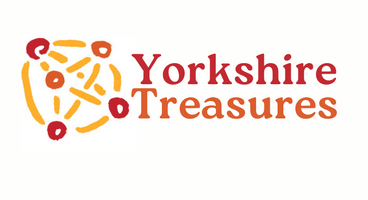
You can tell a lot about the history of places in the Yorkshire Dales from their name. Ham, ley, ton, pen, foss... all give clues to the past.
First came the Celtic tribe of Brigantes, who gave us places with 'pen' in the name, meaning ‘hill’. For example, Penhill, (so good they named it twice?!) and Pen-y-ghent.
Anglo Saxons were the next influence. Look out for names ending in ham or ton (eventually leading to town) which meant a farmstead. The name before –ton or –ham was often either the name of a person who owned that land, geographic feature or a trade carried on there. Masham was the farmstead owned by the Saxon chief, Massa so it was Massa’s ham. This is why it’s pronounced Mass-ham not Mash-em! Skipton originally meant sheep farm! It’s hard to imagine that once woods and forests covered much of the Dales. Ley meant ‘clearing in the woods’ e.g. Wensley.
The Vikings contributed to our language in a really significant way. They gave us suffixes like thwaite meaning ‘clearing’, keld meaning ‘spring’, foss or force for ‘waterfall’, and gill or ghyll meaning ‘ravine’.
Many landscape features still use names from the time of the Danelaw:
Beck – stream
Cam – bank or ridge
Carr – wetland
Fell - mountain
Garth – enclosed grass paddock by a farmstead
Ling – heather
Mire – a pool e.g Redmire would have been a reed pool
Moss – boggy land
Nab – outcrop
Scar – steep rock face
Sett or seat – upland fields, often summer pastures
Syke – gully
Tarn – upland lake
Thorpe - settlement
Whin – thorny bushes
You may have noticed some more fanciful French-sounding names like Jervaulx which came from the Norman. Richmond was originally a strong hill, Richemont, which makes sense when you see the castle!
In the Dales we’re used to the importance of rivers in naming places – most dales are named after their river e.g. Wharfedale, Ribblesdale. A valley is called a dale (from 'tal'), although in some areas you might see words like dean instead, and the valley bottom was called… bottom! Lots of place names end in ford, as in a shallow river crossing. Kirk was the Scandinavian word for church.
Maybe now when you look at the map or drive around the Dales, you'll also see it through the eyes of those ancient settlers. They're long gone, but the names remain.
